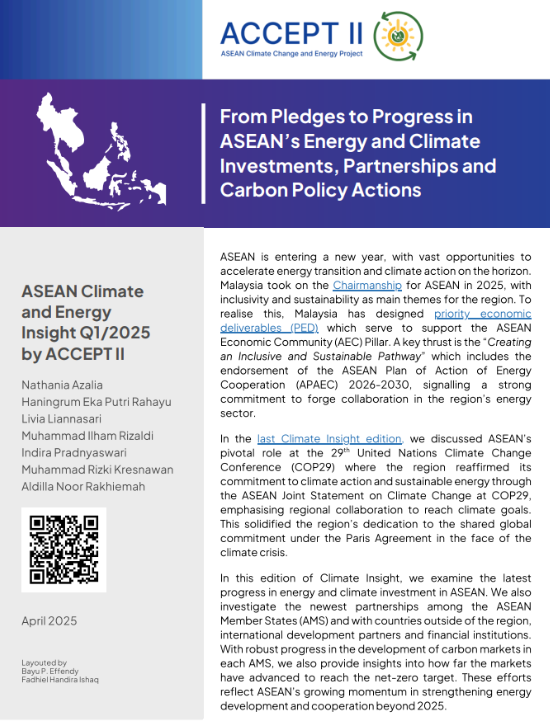From Pledges to Progress in ASEAN’s Energy and Climate Investments, Partnerships and Carbon Policy Actions

Category
Tag
Author
Nathania Azalia, Haningrum Eka Putri Rahayu, Livia Liannasari, Muhammad Ilham Rizaldi, Indira Pradnyaswari, Muhammad Rizki Kresnawan, Aldilla Noor Rakhiemah